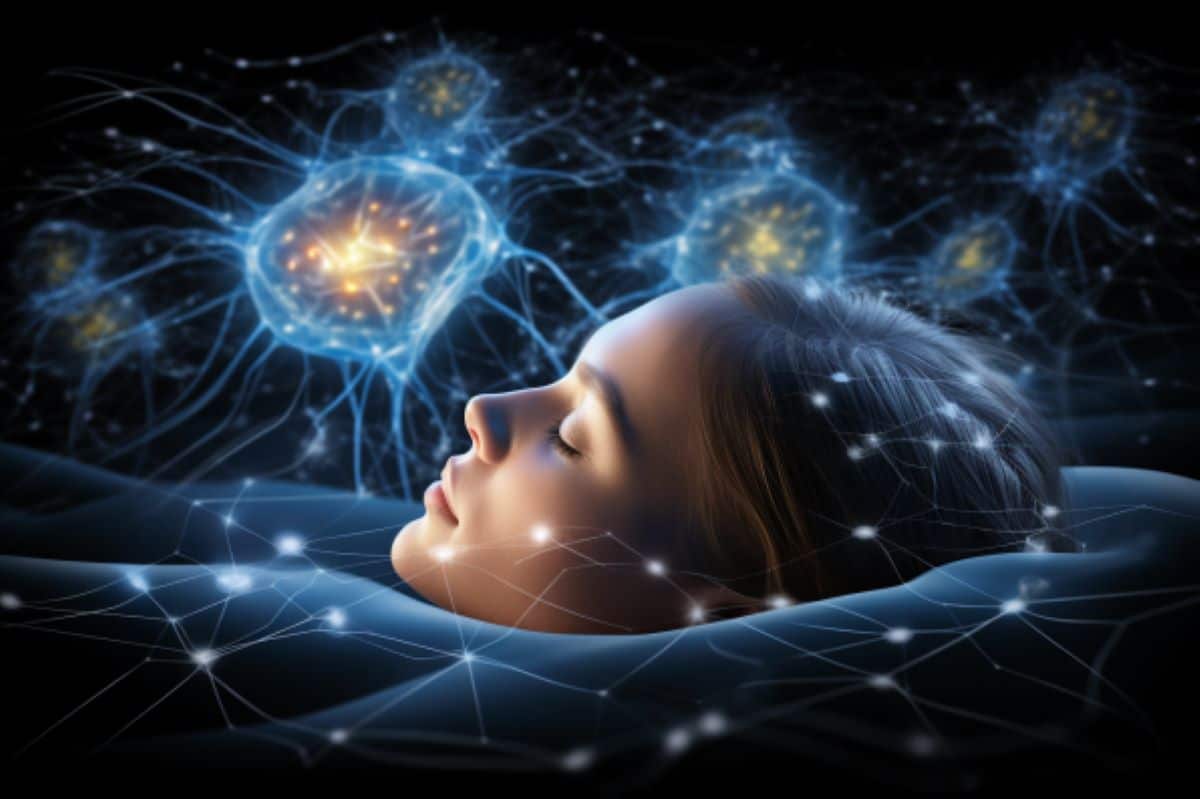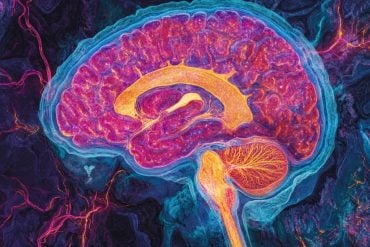Summary: Sleep deprivation doesn’t just leave you tired—it harms the brain and elevates the risk for diseases like Alzheimer’s.
Researchers delving into how this occurs have made a breakthrough by identifying a protein, pleiotrophin (PTN), which drops in sleep-deprived mice. This decline causes neuronal death in the hippocampus, a critical region for memory.
This new insight highlights sleep’s crucial role in brain protection and suggests PTN as a marker for cognitive issues arising from insomnia.
Key Facts:
- Sleep deprivation results in neurological damage, particularly in the hippocampus, affecting memory and learning.
- The researchers identified a decline in the protein pleiotrophin (PTN) in sleep-deprived mice, which leads to hippocampal cell death.
- Genetic studies in humans indicate PTN’s involvement in Alzheimer’s and other neurodegenerative diseases.
Source: ACS
Not only does a lack of sleep make you feel awful, research has shown it impairs the brain. What’s more, sleep loss over long periods can even increase risk for Alzheimer’s and other neurological diseases.
Researchers want to understand how sleep deprivation causes this harm. In a new study in ACS’ Journal of Proteome Research, a team working with mice has identified a protective protein whose level declines with sleep deprivation, leading to neuronal death.

Studies indicate that lack of sleep leads to neurological damage in the hippocampus, a part of the brain involved in learning and memory. To better understand the changes responsible for this effect, scientists have begun examining shifts in the abundance of proteins and RNA, which contains genetically encoded instructions derived from DNA.
In this way, previous studies have identified some factors linking sleep loss to damage; however, researchers haven’t generally confirmed they play a role in cognitive function within larger animal populations. So, Fuyi Xu, Jia Mi and their colleagues set out to further explore how sleep loss damages the brain and to corroborate their findings.
To start off, the researchers evaluated how well mice navigated a simple maze and learned to recognize new objects after having been sleep deprived for two days.
They then extracted the proteins in the animals’ hippocampi and identified those whose abundance changed. Then, to further narrow the possibilities, they looked at data linking these proteins to maze performance in related strains of mice that had not experienced sleep deprivation.
This approach led the researchers to pleiotrophin (PTN), which declined in the sleep-deprived mice. Through an analysis of RNA, the team identified the molecular pathway by which a loss of PTN causes cells in the hippocampus to die.
When they looked at genetic studies in humans, they found that PTN is implicated in Alzheimer’s and other neurodegenerative diseases.
This research has uncovered a new mechanism by which sleep protects brain function, according to the researchers, who also note that PTN levels could serve as an indicator of cognitive impairment resulting from insomnia.
Funding: The authors acknowledge funding from Taishan Scholars Construction Engineering, National Natural Science Foundation of China, Special Project of Central Government for Local Science and Technology Development of Shandong Province, Major Basic Research Project of Shandong Provincial Natural Science Foundation, Shandong Province Higher Educational Youth Innovation Science and Technology Program, Natural Science Foundation of Shandong Province and the Binzhou Medical University Research Start-up Fund.
About this sleep and brain health research news
Author: Katie Cottingham
Source: ACS
Contact: Katie Cottingham – ACS
Image: The image is credited to Neuroscience News
Original Research: Closed access.
“The Combination of Quantitative Proteomics and Systems Genetics Analysis Reveals that PTN Is Associated with Sleep-Loss-Induced Cognitive Impairment” by Fuyi Xu et al. Journal of Proteome Research
Abstract
The Combination of Quantitative Proteomics and Systems Genetics Analysis Reveals that PTN Is Associated with Sleep-Loss-Induced Cognitive Impairment
Sleep loss is associated with cognitive dysfunction. However, the detailed mechanisms remain unclear.
In this study, we established a para-chlorophenylalanine (PCPA)-induced insomniac mouse model with impaired cognitive function. Mass-spectrometry-based proteomics showed that the expression of 164 proteins was significantly altered in the hippocampus of the PCPA mice.
To identify critical regulators among the potential markers, a transcriptome-wide association screening was performed in the BXD mice panel. Among the candidates, the expression of pleiotrophin (Ptn) was significantly associated with cognitive functions, indicating that Ptn-mediates sleep-loss-induced cognitive impairment.
Gene co-expression analysis further revealed the potential mechanism by which Ptn mediates insomnia-induced cognitive impairment via the MAPK signaling pathway; that is, the decreased secretion of Ptn induced by insomnia leads to reduced binding to Ptprz1 on the postsynaptic membrane with the activation of the MAPK pathway via Fos and Nr4a1, further leading to the apoptosis of neurons.
In addition, Ptn is genetically trans-regulated in the mouse hippocampus and implicated in neurodegenerative diseases in human genome-wide association studies.
Our study provides a novel biomarker for insomnia-induced cognitive impairment and a new strategy for seeking neurological biomarkers by the integration of proteomics and systems genetics.






